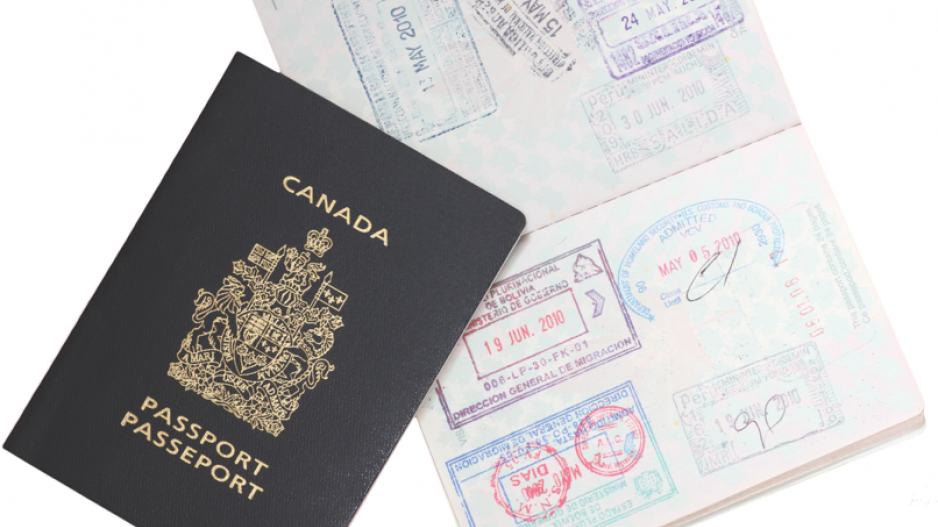Applying for visas, especially if you’re travelling to more than one foreign country, should be started well in advance. In many situations, you may have to send your passport to a particular embassy in order to secure proper documents, which could take up to eight weeks to process. If you need more than one visa, the amount of time to secure them can add up.
Visa fees vary widely, from under $100 to several hundred dollars, but if you are entering one foreign country from another, such as going to China from Thailand, it may be less expensive (and sometimes easier) to get a visa while overseas. Dropping in to chat rooms on travel sites – such as the Thorn Tree on Lonely Planet – can get you up-to-the minute information on best deals from travellers around the world.
There are online companies that will secure visas on your behalf for a fee, but do your due diligence and check reviews. Quality seems to vary widely depending on what visas you’re asking them to get. As well, certain countries, such as Israel, will not allow third parties and services to assist in acquiring visas. Travellers to these countries must go through embassy channels instead. Embassies for countries listed here are located in Ottawa.
Finally, be clear on whether your visa duration starts from the date of arrival in the foreign country or from the date of issue. This information also varies from country to country.
United States
Consulates in Vancouver, Calgary, Winnipeg, Toronto, Montreal, Quebec and Halifax. Canadian citizens going to the U.S. on temporary business, such as meetings and consultations, attending conventions and conferences or negotiating contracts, do not need visitor visas because they qualify for entry under the Visa Waiver Program (VWP) for visits of 90 days or less.
Permanent residents (landed immigrants) of Canada must have a non-immigrant visa unless the permanent resident is a national of a country that participates in the Visa Waiver Program, meets VWP requirements and is seeking to enter the United States for 90 days or less under that program.
United Kingdom
Consulates in Vancouver, Calgary, Toronto and Montreal. You can visit the U.K. on business for up to six months without a visa, but you can only participate in certain academic or business-related activities, such as attending meetings, conferences and interviews, giving speeches, negotiating contracts, carrying out site visits or being briefed on the requirements of a U.K.-based company. However, you cannot directly sell or do work for a fee within the U.K.
Schengen
Consulate locations vary. The Schengen Area comprises 26 European states, including France, Germany, Spain and Italy, that have officially abolished passport and all other types of border control at their mutual borders. The area mostly functions as a single jurisdiction for international travel purposes, with a common visa policy. Canadian citizens are allowed to visit Schengen countries for tourism or business purposes for up to 90 days in any 180-day period without a visa.
Mexico
Consulates in Vancouver and Calgary. If you are going to Mexico for less than 180 days and you won’t be getting any remuneration for your activities while you’re there, you don’t require a visa.
All foreign visitors, regardless of nationality, travelling to Mexico for tourism, business or in transit to another destination are exempt from presenting a Mexican visa as long as they have a valid visa issued by any of the following countries: Canada, Japan, the United States of America, the United Kingdom or any of the countries comprising the Schengen Area.
Foreign visitors who, regardless of their nationality, have a valid permanent resident card from Canada, Japan, the United States, the United Kingdom or any of the countries comprising the Schengen Area do not require a Mexican visa.
Cuba
Consulates in Toronto and Montreal. While tourists entering Cuba can travel for 30 days on just a Canadian passport, business travellers need a visa even for short stays. You must distinguish whether you are going to explore business possibilities or engage in business operations or transactions, as there are different requirements. The latter requires a letter of invitation from a Cuban company, organization or institution, while the former doesn’t. You may also need a letter from the Canadian company you work for stating the purpose of your visit, length of stay and dates of departure and return. The cost is $168 ($200 for a rush) and payments must be made in cash, by means of certified bank payment or bank transfer.
China
Consulate in Vancouver. Plan your application well in advance as extensive paperwork is required for business travel to China, including a full description of activities as well as letters of invitation. The fee is $100.
Travellers with an APEC business travel card (ABTC) do not require a visa to enter China.
Since Canada is only a transitional member of the ABTC scheme and does not grant visa waivers to ABTC holders from other APEC member countries, Canadian citizens cannot get visa-free travel with an ABTC. However, they qualify for expedited visa appointment procedures for APEC countries that require visas for Canadian citizens; as well as use of specially marked ABTC lanes at airports.
Hong Kong, Israel, Japan
Consulate locations vary. Canadian citizens using Canadian passports do not require a visa to enter Hong Kong, Israel or Japan for tourism or business stays under 90 days.




